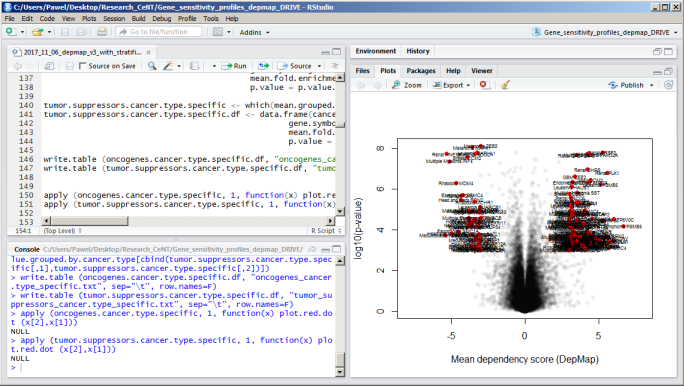The literature on cancer drivers is dominated by a few major players, such as P53, KRAS, and MYC. However, these proteins are either considered “undruggable” or their function is so essential to all cells, that disrupting it would have major adverse effects. Thus finding suitable targets for cancer therapy has been likened to searching for a needle in a heystack. This search is now more tractable thanks to the recent massive expansion of broadly available large scale datasets and the development of bioinformatic tools designed to work with this data. We use data derived from genomic, epigenomic, transcriptomic, and screening experiments to discover previously unknown druggable targets that are essential for the growth and survival of tumor cells. Our ability to rapidly cycle between bioinformatic analyses and “wet lab” experiments allows us to validate and prioritize interesting target genes.
